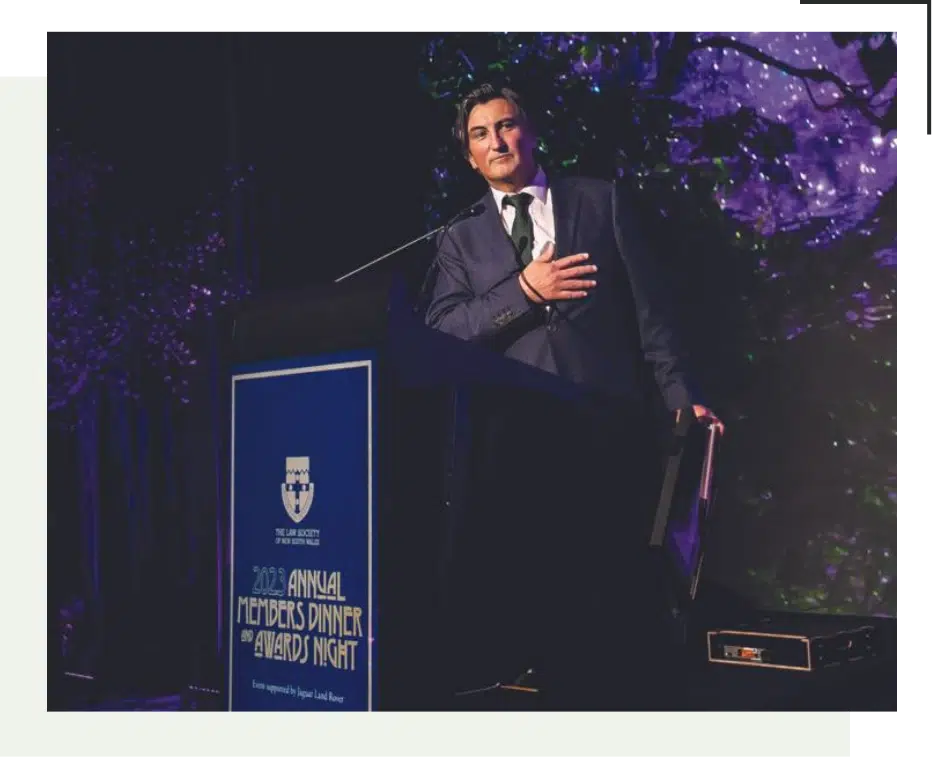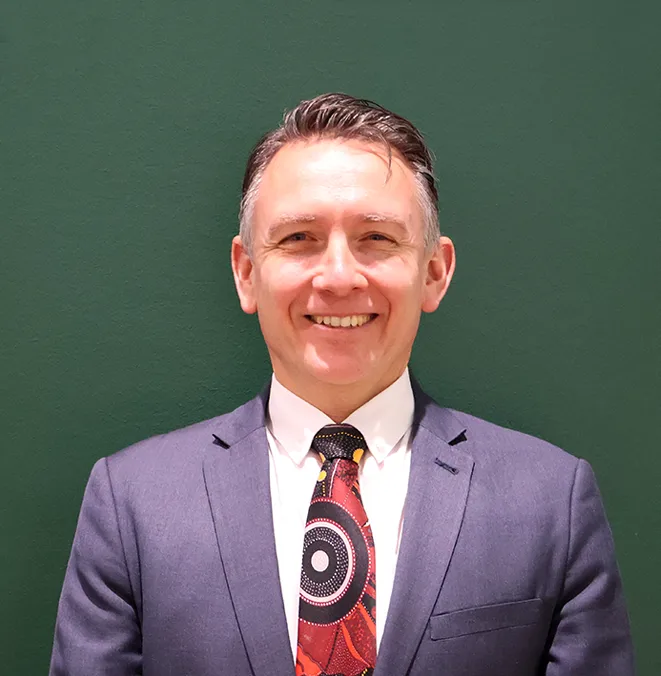Specialist Drug Possession Lawyers in Sydney & Nationwide
Your Freedom Deserves Our Expertise
Trusted & Recommended by Clients. Let by Accredited Specialists
4.6 – 120 Reviews


The O'Brien Advantage
Proven
Track Record
We have successfully defended clients against various drug possession charges, ensuring the best possible outcomes. Our victories demonstrate our unwavering commitment to protecting our clients' rights and freedoms.
Drug Possession Lawyers: Our Expertise
Our team has in-depth knowledge of drug possession laws. We expertly navigate the complexities of the legal system to build a robust defence for our client’s prohibited drugs charges.
Personalised
Approach
We understand every drug charge is unique. Our criminal lawyers in Sydney take the time to understand your situation and approach every case with sensitivity.
Flexible Payment Options
We offer flexible payment plans to ensure you can access top-tier legal defence without financial strain. Speak to us today for information on Legal Aid options. Book a free 15-minute consultation with one of our experienced drug lawyers today to safeguard your freedom.
Types of Cases We Handle
CANNABIS POSSESSION
We provide robust defence strategies for clients charged with cannabis possession. Our lawyers aim to minimise penalties or achieve dismissals via thorough investigation and strategic legal arguments.
COCAINE POSSESSION
Our lawyers have extensive experience defending clients accused of cocaine possession, focusing on protecting your freedom so you avoid prison time.
MDMA (ECSTASY) POSSESSION
We handle cases involving allegations of MDMA possession, ensuring thorough and strategic defence to avoid criminal charges or jail time.
METHAMPHETAMINE POSSESSION
We also defend clients against charges of methamphetamine possession, working tirelessly to protect your rights and freedom.
PRESCRIPTION POSSESSION
We assist clients facing charges of prescription possession, providing comprehensive defence services to navigate complex regulations.
OTHER DRUG POSSESSION OFFENCES
We handle a wide range of drug offences, including heroin, LSD, and other controlled substances.
Protecting Your Rights: Actions We Can Take
At O’Brien Criminal and Civil Solicitors, our criminal lawyers understand the urgency of safeguarding your freedom. Here are some ways we can help you:
Mitigation Strategies
We work to reduce drug possession charges and penalties through strategic negotiations and legal arguments.
Seeking Bail
Our lawyers are experienced in applying for bail and ensuring you have the best chance of being released while awaiting trial for prohibited drug charges.
Negotiating Plea Bargain & Sentencing
We also aim to achieve favourable plea deals or dismissals through effective negotiation if you are pleading guilty.
Defence in Court
If necessary, we vigorously defend you in court. The most effective action depends on the nature of your case and the severity of the charges. Our lawyers will carefully evaluate all options and advise you on the path most likely to achieve your desired outcome.
Meet Our Criminal Defence Team
With over a decade of experience, we are known as one of Australia’s leading criminal defence firms. Led by firm founder and Principal, Peter O’Brien, our dedicated and enthusiastic team has defended clients in courts all over the country, from your local court to the High Court of Australia.
No matter how big or how small your case, we will always provide you with clear advice and cost effective legal representation.

Peter O'Brien
Principal Solicitor
Stewart O'Connell
Senior Solicitor
Sidnie Sarang
Criminal Solicitor
Wilson Tighe
Criminal Solicitor
Elliot Rowe
Criminal Solicitor
Bethany Burns
Criminal Solicitor
Timothy Rayner
Criminal Solicitor
Matthew Hudson
Practice Manager
Mark Barnaville
Paralegal
Jackson Phillips
Paralegal
Our team at O’Brien Criminal & Civil Solicitors are led by Law Society Accredited Specialists in Criminal Law and in Civil Law. To become an Accredited Specialist, a practitioner must undergo a structured assessment process. This process requires the individual to utilise their existing knowledge and skills to demonstrate their competency and expertise in their chosen area of law.

The Drug Possession Defence Process
1. Free Initial Consultation
If you are facing drug possession charges, contact O'Brien Criminal and Civil Solicitors for a free consultation . Our lawyers will assess your situation, explain your legal options, and discuss flexible payment options.
2. Investigating & Building Your Case
Your Case: Your lawyer will meticulously gather evidence and develop a strategic defence, which may involve negotiating with prosecutors or preparing for trial.
3. Communication & Updates
Your lawyer will keep you informed of your case's progress, explaining legal processes in clear terms. You'll collaborate with your lawyer to review documents and make key decisions.
4. Pursuing a Resolution
We can have charges dismissed and represent you in court proceedings in a local court. Alternatively, if you are found guilty of drug possession, our lawyers can help negotiate a plea deal.
Voices of Justice: Client Reviews
Read what clients of O’Brien Criminal and Civil Lawyers have said in Google Reviews after we’ve helped clients restore their good names.
Natasha Myler
Wilson Tighe is the best criminal lawyer in Sydney. I highly recommended him not only for his highly competence in laws but also for his kindness and humanity. We thank him a lot for his help in our matter.
Ruen Motto
Used O'Brien solicitors for both of my criminal law cases which they managed to get all charges dismissed when I was looking down the barrel of 18 months jail. Then even more impressively ran my civil claim vs the police and I got a very good outcome and substantial pay out. Easy to talk to and actually listened and took my opinion into consideration which is a first. Highly recommend!
Jonah Yahud Islam
Dedicated, diligent and efficient! I had the good luck of being represented by O'Brien lawyers resulting in a favourable outcome. If you are looking for lawyers to represent you in a difficult criminal case, then look no further.
Danny Lane
The quality of service provided far exceeded my expectations. The elegance and professionalism in which this firm conducts itself is to be admired. They don't treat you as just another client. I cannot recommend them enough for criminal and civil matters as they excel at both. Special thank you to Peter & Elle, I will never forget the impact this outcome has had on my life.
K Wong
I recently had to engage the firm to represent me in a criminal matter. I initially liaised with Tim Rayner (criminal paralegal) who assisted with handling my case, whom I found to be professional and always responsive. Elliot Rowe (criminal solicitor) was assigned as my legal counsel. I highly commend Elliot for his consistently methodical and prudent handling of my case and his calm and patient demeanour, which provided some measure of reassurance to me during a particularly distressing period in my life.
Chris
I found myself facing the criminal justice system for the first (and hopefully only) time. Contacted O'Brien solicitors based on the number of positive reviews and was put through to Elliot. His patience with me was outstanding, helping me navigate and understand what lay ahead. Never felt rushed. He was very objective and not judgemental in any way. Gave me plenty of options which allowed me to arrive at a fair outcome. At sentencing he spent the whole day with me in court. I consider Elliot to be more an ally not just a lawyer. Can't recommend Elliot highly enough.
Ingrid Kelly
Me and my family have been working with O'Brien Criminal and Civil Solicitors in regards to representing us for criminal defence in two cases. In both cases our solicitor Wilson Tighe was professional, transparent and provided us with professional advice throughout the procedures. I highly recommend their services to others.
Blake Hopkinson
Sidnie was thorough, informative and well versed. Her dedication and attention to detail, and ability to force the truth to be seen, were the reason I got the result that I should have. Highly recommended her and this firm.
Anika-Devi Madision
O’Brien Criminal and Civil Solicitors have been an outstanding service to me in both criminal and civil matters, if anyone or any organisation needs professional law support, this is an absolute dedication of people who have passionately studied and become experienced experts in getting results, thank you I am so grateful.
Shina Khan
O'Brien Criminal and Civil Solicitors is hands down the most reliable, understanding and professional firm I have dealt with. Peter, Tim and Wilson have helped me and my family through the roughest time and were able to provide us with an amazing outcome. I would definitely highly recommend this firm to anyone that requires Solicitors that offer professionalism and care. THANK YOU SO VERY MUCH.
Savanna Elias
I highly recommend O'Brien solicitors, especially Peter O'Brien and Wilson Tighe. They went above and beyond. Easily contactable anytime I had a question, diligent, kept us up to date and always communicated each step and options with me.
Eme
As a client of O'Brien Criminal & Civil Solicitors, I am extremely satisfied with the services provided by Tim Rayner and the entire team. From the initial consultation to the final resolution of my legal matter, I have been impressed with the level of professionalism, expertise, and attention to detail demonstrated by everyone involved.
What to Do if You've Been Charged with Drug Possession
Facing a drug charge can have serious consequences. Here’s what to do to protect your rights:
- Remain calm and exercise your right to silence
- Avoid discussing the case with anyone except your lawyer
- Understand the charges
- Review the court attendance notice or penalty notice
- Gather relevant information
- Document the circumstances of your arrest or the issuance of the penalty notice
- Consult an experienced criminal defence lawyer
- Seek legal advice as soon as possible
- Discuss your options with your lawyer
- Explore possible defences (e.g., illegal search, lack of knowledge, shared possession)
- Decide on your plea
- Plead guilty if you accept responsibility (may lead to a more lenient sentence)
- Prepare for court
- Gather character references and other supporting documents
- Explore alternative resolutions
- For first-time offenders, investigate options like the Cannabis Cautioning Scheme
- Attend all required court appearances
- Follow your lawyer's advice during proceedings
- Comply with court orders
- If convicted, adhere to all conditions set by the court
Remember: Don’t face drug charges alone. Let our expert defence team defend you against charges for cannabis, cocaine, MDMA, methamphetamine, prescription drugs, or any other controlled substances.
FAQ’s on Drug Charges
How long does the legal process take for a drug possession case?
The duration of a drug case can vary depending on the complexity of the case, the court’s schedule, and whether the case goes to trial. Most cases will be heard in a local court.
Some cases may be resolved quickly through plea agreements, while others may take longer if they go to trial. Our lawyers will keep you informed about the timeline.
What are penalties for drug possession in NSW?
Drug possession penalties (known as illegal drug listed under schedule 1) in NSW vary based on the type and quantity of the drug. For small quantities, police can issue on-the-spot fines of $400, which may be waived by completing a health intervention program.
The maximum penalty is generally 2 years imprisonment and/or a fine of up to $5,500.
However, penalties escalate significantly for larger quantities. For example, possession of commercial quantities can result in up to 15-20 years imprisonment and fines up to $550,000, while large commercial quantities may lead to life imprisonment. Penalties also increase if supplying to minors. It's crucial to note that specific penalties depend on factors such as the individual's criminal history and the circumstances of the offence.
The maximum penalty is generally 2 years imprisonment and/or a fine of up to $5,500.
However, penalties escalate significantly for larger quantities. For example, possession of commercial quantities can result in up to 15-20 years imprisonment and fines up to $550,000, while large commercial quantities may lead to life imprisonment. Penalties also increase if supplying to minors. It's crucial to note that specific penalties depend on factors such as the individual's criminal history and the circumstances of the offence.
Can I represent myself in a drug possession case?
You can represent yourself for drug charges, but a lawyer can provide crucial advantages. Our drug lawyers in Sydney understand the intricacies of the Misuse and Trafficking Act 1985 NSW and can effectively navigate the legal system.
A defence lawyer will challenge the prosecution's evidence, which must be proved beyond reasonable doubt, and clarify what constitutes drug possession under NSW law. With their expertise, they can negotiate lesser penalties for drug charges and possibly avoid a criminal conviction.
A defence lawyer will challenge the prosecution's evidence, which must be proved beyond reasonable doubt, and clarify what constitutes drug possession under NSW law. With their expertise, they can negotiate lesser penalties for drug charges and possibly avoid a criminal conviction.
First time drug possession charges NSW
First-time drug possession offenders in NSW may be eligible for special concessions, including:
- Cannabis Cautioning Scheme: For small amounts of cannabis, drug misuse offenders may receive a caution instead of criminal charges.
- Conditional Release Order (CRO): A non-custodial sentence that allows offenders to avoid conviction while adhering to specific conditions.
- Section 10 Dismissal: The court may dismiss charges without recording a conviction, especially for first-time offenders.
Eligibility for these concessions often depends on factors such as:
- The type and quantity of the drug
- The offender's criminal record (including drug misuse history)
- Willingness to participate in rehabilitation programs
Our expert criminal lawyers can:
- Navigate complex drug laws and recent changes
- Develop effective defence strategies
- Negotiate with prosecutors for reduced charges or penalties
- Advocate for alternative sentencing options
- Maximise chances of avoiding conviction and minimising long-term consequences
Remember, even first-time offences can carry serious penalties, including fines up to $5,500 and potential imprisonment. Seeking professional legal advice is essential to help avoid this.
Can a drug possession charge affect my immigration status?
Yes, a prohibited drug possession charge can significantly impact your visa status and prospects for Australian citizenship. Under Section 501 of the Migration Act 1958, the Minister for Home Affairs has the authority to cancel or refuse a visa if the individual fails the character test, which includes having a substantial criminal record.
A substantial criminal record is defined as being sentenced to imprisonment for 12 months or more, among other criteria. Additionally, a criminal conviction can affect your application for Australian citizenship, as applicants must demonstrate good character. The Department of Home Affairs reviews all criminal histories and may refuse citizenship if the applicant is deemed not to meet the good character requirement. Charges can lead to visa cancellation, deportation, and denial of citizenship applications.
A substantial criminal record is defined as being sentenced to imprisonment for 12 months or more, among other criteria. Additionally, a criminal conviction can affect your application for Australian citizenship, as applicants must demonstrate good character. The Department of Home Affairs reviews all criminal histories and may refuse citizenship if the applicant is deemed not to meet the good character requirement. Charges can lead to visa cancellation, deportation, and denial of citizenship applications.
How a drug possession lawyer can help
An experienced drug lawyer in NSW can provide invaluable assistance in several ways:
Book a free 15-minute initial consultation to chat directly with an experienced drug lawyer from the O’Briens team. Our office is conveniently located in the Sydney CBD, and we serve clients across New South Wales and Australia.
- Challenging Evidence: Lawyers can scrutinise how evidence was obtained and handled. If the police conducted an illegal search or failed to follow proper procedures, the evidence might be dismissed.
- Reducing Charges: Experienced lawyers can negotiate with the prosecution to reduce the severity of the charges, such as downgrading a supply charge to possession.
- Plea Deals: Lawyers can negotiate plea deals that may result in reduced sentences or alternative sentencing options like a section 10 dismissal, which avoids a criminal conviction.
- Defence Strategies: They can develop robust defence strategies, such as proving lack of knowledge or intent to possess the drugs, which can lead to charges being dropped or not being found guilty beyond a reasonable doubt.
- Mitigating Penalties: By presenting character references, demonstrating remorse, and showing prospects for rehabilitation, lawyers can argue for more lenient penalties.
- Legal Representation: They provide representation in court, ensuring that the defendant's rights are protected throughout the legal process and aiming for the best possible outcome
Book a free 15-minute initial consultation to chat directly with an experienced drug lawyer from the O’Briens team. Our office is conveniently located in the Sydney CBD, and we serve clients across New South Wales and Australia.











